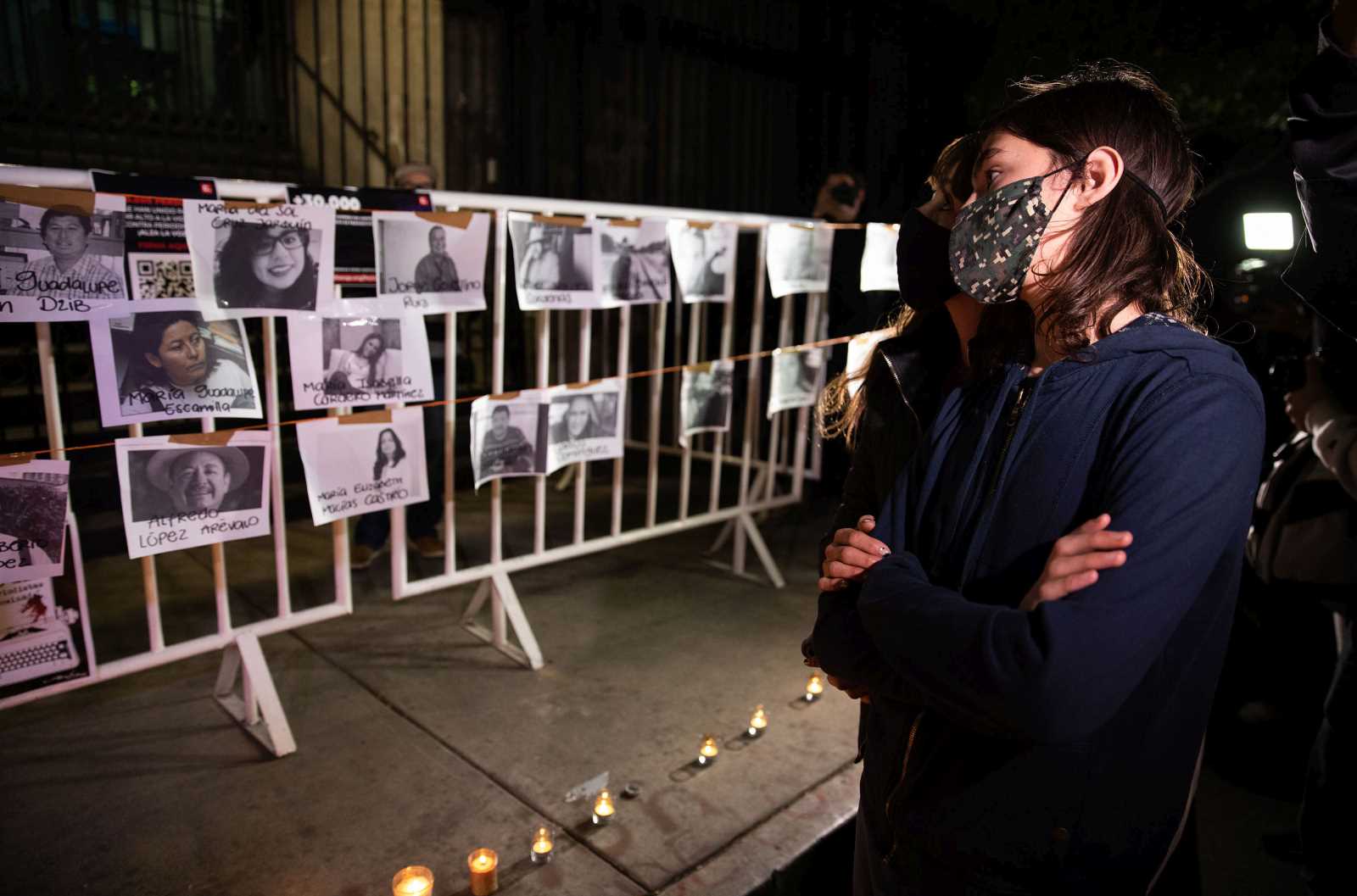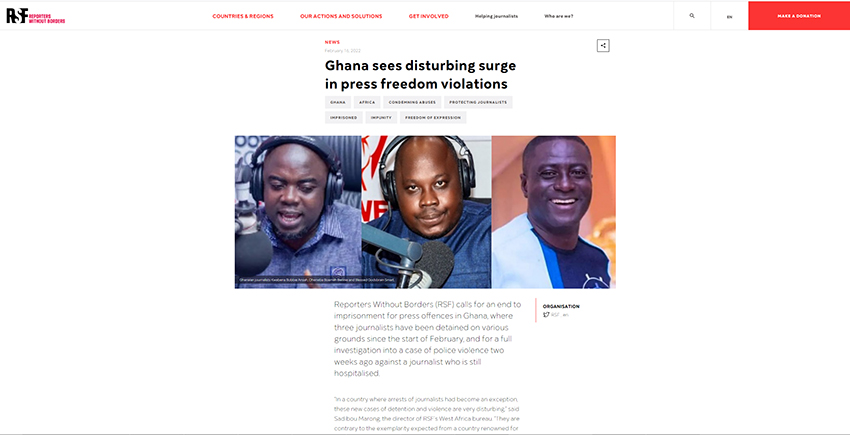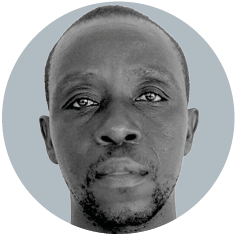Public discourse
Indispensable quality journalism

In March, a high-level expert group (HLEG) on fake news and online disinformation published sensible and well-considered recommendations on behalf of the European Commission. Its report deserves international attention.
The HLEG rejects the popular term “fake news” because leaders with authoritarian leanings use it to discredit any news they dislike. In the experts’ eyes, the term “disinformation” is better to designate “all forms of false, inaccurate or misleading information designed, presented and promoted to intentionally cause public harm or for profit”.
Disinformation causes damage, but it is not necessarily illegal. The challenge is to restrict it without curtailing the fundamental freedom of expression. For this to happen, the HLEG proposes a multi-dimensional approach which would rest on the following “five pillars”:
- enhanced transparency of how – and to whom – online news is distributed,
- the promotion of media literacy, so users better understand the media environment,
- innovative tools to empower users and journalists to use fast-evolving information technology competently,
- safeguarding the diversity and sustainability of Europe’s media ecosystem and
- systematic research on the impacts of disinformation and effective responses.
As the HLEG convincingly elaborates, keeping disinformation in check concerns society as a whole. The job must not be left to government institutions. As the HLEG points out, “not all European politicians and public authorities share the same level of respect for media freedom” and some political actors are “purveyors of disinformation”. Foreign actors, moreover, may want to interfere in European politics.
An important first step, in the experts’ eyes, is to get media stakeholders – ranging from the press and broadcasters to fact checkers and the advertising industry – to draft and adopt a European code of practices that would define roles and responsibilities. The HLEG wants digital media to provide all information users need to understand who is disseminating the news. Sponsored content should be identifiable, and users deserve information on advertising policies. According to the HLEG, they should be told about funding, algorithms and robots. Finally, platforms should facilitate fact-checking, offering links to trust-worthy fact-checking sites and flagging dubious content.
According to the HLEG, it is essential to boost media literacy. To detect disinformation, users must be aware of how media operate. They should understand what constitutes best practices and why errors may occur nonetheless. At the same time, independent, fact-based journalism must be encouraged, especially if it challenges well-established powers. Schools and other institutions should promote media literacy. On top of all this, the HLEG demands that professional journalists get advanced training so they stay abreast of digital developments.
The EU experts acknowledge that the conventional media – in particular the press – are in crisis because the internet has made news freely available and thus undermined long-established business models. The HLEG is in favour of public funding for projects that support quality journalism. One option is tax breaks for quality media.
Finally, the expert group wants the EU and its member states to establish a network of independent academic research centres that focus on disinformation. Among other things, it would:
- monitor the scale, techniques and tools of disinformation as they evolve,
- identify sources of disinformation and
- share knowledge with all stakeholders.
The proposals are coherent and indicate a way in which Europe can stem the tide of disinformation. The snag is that this approach depends on a sufficient number of stakeholders cooperating. Unfortunately, some media outlets support irresponsible populists and spread disinformation accordingly. They must be named and shamed.
In principle, the approach proposed by the experts should work everywhere. As the authors acknowledge, however, it matters that the EU is a highly developed world region with strong infrastructure, good education and vibrant civil societies. It is probably harder to promote media literacy in places where literacy itself cannot be taken for granted. Encouraging independent fact-checking in places where freedom of speech is not a long-accepted norm is probably more difficult too.
Post-truth society
How disturbing life in a post-truth setting can become, is the topic of Peter Pomerantsev’s book “Nothing is true and everything is possible”. The stories he tells seem so crude they seem like fiction, but if one googles the names of persons and places it turns out that there is some substance to them. Pomerantsev is a British TV journalist of Russian descent. He spent a decade working in Moscow.
His book is a personal memoir. As a reporter, he dealt with a great variety of people, including gangsters, business people, public servants, civil-society activists and fashion models. Sometimes, such roles blend into one another. Pomerantsev paints the picture of a society in which might makes right. Connections matter, the truth does not. News is always manipulated some way or another.
Pomerantsev makes it quite clear that the government does not necessarily want people to believe its propaganda. The point is that “if they can lie so much and get away with it”, it means “that they have real power, the power to define what is true and what isn’t”. One of Pomerantev’s conclusions is: “If all motives are corrupt and no one is to be trusted, doesn’t that mean that some dark hand must be behind everything?”
Nobody is safe
A particularly striking episode is about Yana Yakovleva, a businesswoman who is arrested one day, taken to jail and accused of selling illegal drugs. The charge is absurd, but her case drags on and she stays behind bars. It becomes clear that she is a victim of a feud within the secret service. One leader wants to set an intimidating example by getting her sentenced, while another one feels such a development would hurt his interests. In the end, the women comes free because the latter turns out to be closer to the president. Her example shows that even successful business leaders cannot rely on the rule of law. Nobody is safe. Those who enjoy protection today, may fall out of favour tomorrow.
The final chapter describes a society in which patriotism is becoming increasingly aggressive. The government promotes a sense of paranoia, whilst promising to restore national greatness. The military is celebrated and violence is considered normal. Anyone who dissents can fast be cast as an enemy.
In the foreword to the 2017 edition, Pomerantsev worries that the Russian example may prove paradigmatic. It worries him that “a reality-show star has captured the presidency” in the USA, substituting “politics with entertainment”.
The situation might be less worrisome had the established media in the USA done a better job. Donald Trump benefited from what observers now call “false equivalence”: American journalists’ propensity to give “both sides” in a political controversy equal credit. As early as 2001, Bill Kovach and Tom Rosenstiel, published a book that challenged this attitude. In “The elements of journalism” they outline an agenda to shore up professional standards. They point out that the purpose of journalism is “to provide people with the information they need to be free and self-governing”. Accordingly, they argue:
- Journalism’s first obligation is to the truth.
- Its first loyalty is to citizens.
- Its essence is a discipline of verification.
- Its practitioners must maintain independence from those they cover.
- It must serve as an independent monitor of power.
- It must provide a forum for public criticism and compromise.
- It must strive to make the significant interesting and relevant.
- It must keep the news comprehensive and in proportion.
- Its practitioners have an obligation to exercise their personal conscience.
- Citizens too have rights and responsibilities when it comes to the news.
What these principles imply, is spelled out chapter by chapter. Media workers who want to do their job in a spirit of responsibility are well advised to consider the demands that Kovach and Rosenstiel raise. Their book is of lasting relevance. It is probably even more important today than when it was first published in 2001. Disinformation has increased all over the world – to the benefit of irresponsible politicians.
References
High-Level Expert Group, 2018: A multi-dimensional approach to disinformation.
https://ec.europa.eu/digital-single-market/en/news/final-report-high-level-expert-group-fake-news-and-online-disinformation
Kovach, B., and Rosenstiel, T., 2001, 2007: The elements of journalism. What newspeople should know and the public should expect. New York: Three Rivers Press.
Pomerantsev, P., 2015, 2017: Nothing is true and everything is possible. Adventures in modern Russia. London: Faber and Faber.













